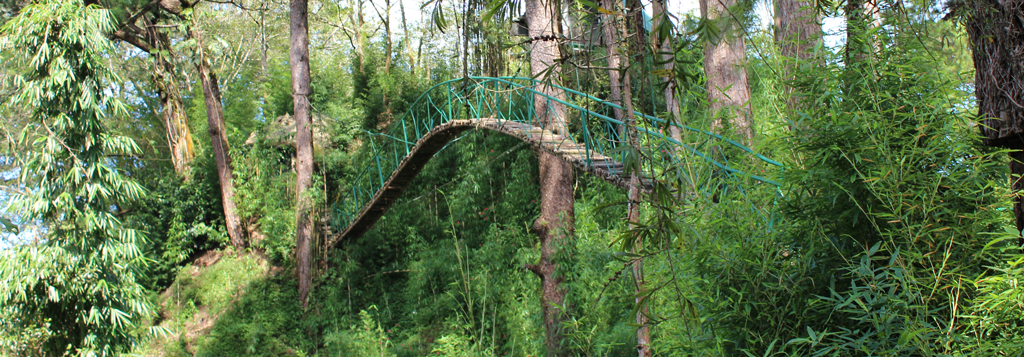 Maryknoll Sisters #EarthDay Celebration 2017
Maryknoll Sisters #EarthDay Celebration 2017
Join our week long Earth Day Celebration on social media! Look for our daily posts on Instagram, Facebook, & Twitter on how our Sisters are helping the environment each day! Also, find tips on how you can help the planet! #GoGreen
Reforesting Forests and Mountains Back To Life
Sister Marvie’s Earth Ministry in the Philippines
by Sister Marvie L. Misolas, MM
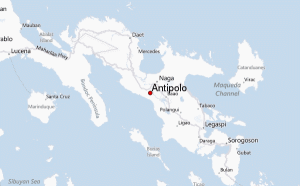
I climbed a carved hardened mud stairs to the top. My mind was wandering just how slimy these mud stairs during rainy days. At the top of the stairs, a covered vegetable nursery is bursting with greens. Light shades of green lettuce sparkling under the sun dancing like jagged jades. The meeting hall was still empty. Virgie, the leader of the group arrived and opened the locked nursery, showing me their community vegetable garden.
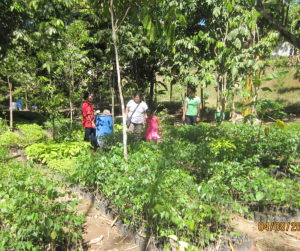
One by one, the women, some with their children came and sat inside the hall, made of bamboos. I was told some of them had to walk for 4 hours to get there. This group is composed of Dumagats-Remontado tribes, and migrants to the area. I suggested that while waiting for the people to arrive that I see their seedling nursery. It was not very far from the meeting area. I was so impressed to see how lush and green are the seedlings in black polybags, some are about two feet high, ready for planting in June/August, when rain comes. The nursery is filled with wonderful energy, the little plants bursting forth and shining with their fresh green shoots. These seedling totaling more than 100,000 are left from the 200,000 seedlings planted last year.
My three companions started sharing their stories…how their lives were changed because of Maryknoll Sisters helping them by providing funding to buy the polybags. They were able to purchase 200,000 bags, which they all used for planting the seedlings. Last year’s planting of 100,000 seedlings have given many of their members much needed income to sustain their families.
The project did not only benefit the household, but helped their organization opened a rice cooperative, helping members secure rice loans for staple and pay it back. The farmers and forest dwellers were able to veer away from cutting down forest for charcoal making, their only means of livelihood from the forest. For one of the women, she and her husband were able to get married in the Church. One of the elders was very proud, his daughter were able to graduate from college and is now teaching in the local primary school. What is also exciting to know is the return of the biodiversity in the area…like fireflies, lizards, wild chickens, frogs, and many other animals have come back which was truly amazing. I cried listening to them, because their stories gave me so much hope how the environment can be helped regenerate itself.
“I used to cut the forests to make charcoal, now I plant trees
and realized my responsibility to care for the forest
which gives us life.”
-TSKC member
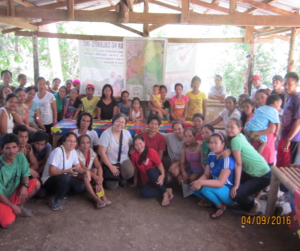
When asked what kind of help they would still need, they said: planting tools such as planting spades, shovels, mattocks, grass cutters, etc. They need to make fire lines to protect the young trees from forest fires and monitor their growth. They also need boots for protection from snakes. They also appealed if they can be helped to give their children school supplies for the coming school year in June and some basic medicines for fever and pain.
The women asked if they could be helped to plant cash crops such as turmeric and post-harvest processing and marketing. This way, they said, they can continue to support their husbands while staying with their younger children. Their experience going to the planting site, they had to go for two weeks away from families. Children are left with relatives while they plant. The Calawis group now has 95 members, majority are women, numbering 54. This group is pretty much organized.
They hope Maryknoll Sisters will continue to support their little steps towards development and sustain their community and forest economy. They vowed to protect the forest so that it can recover and biodiversity restored. They thank the Maryknoll Sisters and their benefactors.
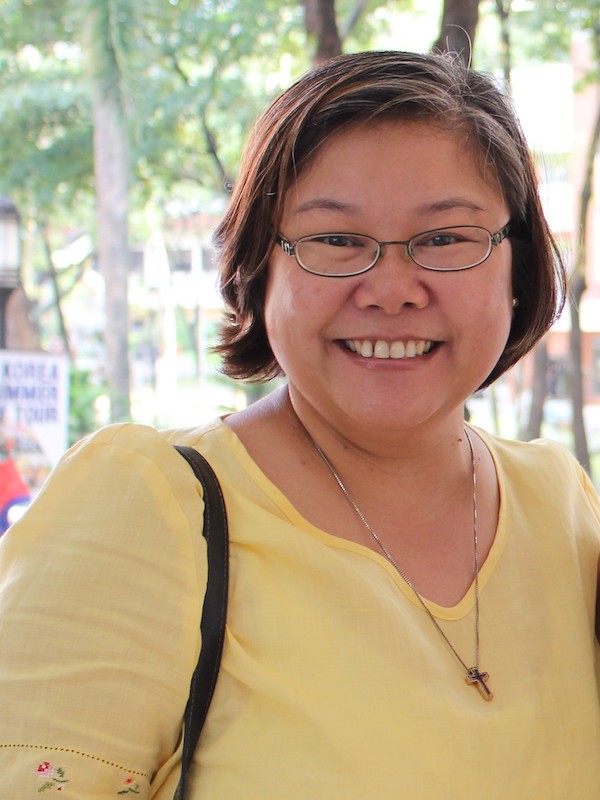
Please help Sister Marvie in her mission, as well as all our Sisters who serve poor, oppressed and marginalized people in 24 countries around the world.
“We are not here on Earth to be alone, but to be a part of a living community, a web of life in which all is sacred. Like the cells of our body, all of life is in constant communication, as science is just beginning to understand. No bird sings in isolation, no bud breaks open alone. And the most central note that is present in life is its sacred nature, something we need to each rediscover and honor anew. We need to learn once again how to walk and breathe in a sacred universe, to feel this heartbeat of life. Hearing its presence speaks to us, we feel this great bond of life that supports and nourishes us all. Today’s world may still at times make us feel lonely, but we can then remember what every animal, every insect, every plant knows — and only we have forgotten: the living sacred whole.”
—Llewellyn Vaughan-Lee


